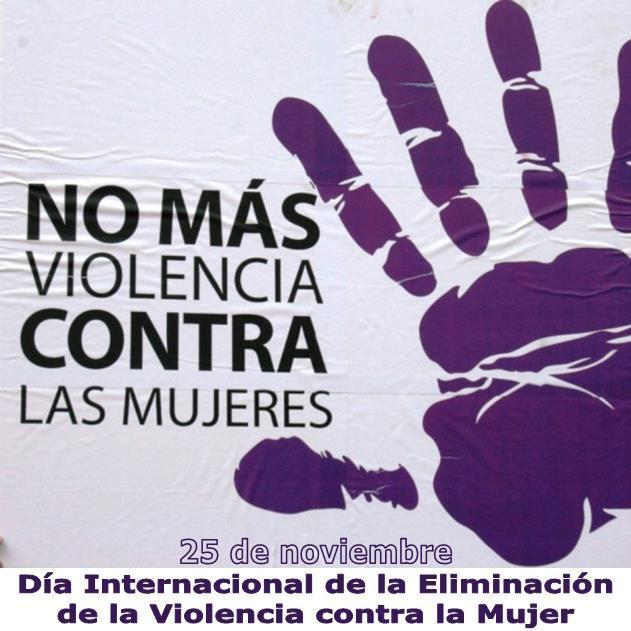01
02/2022
HealthUpdated
Change of scenery, same victims. On the International Day for the Elimination of Violence against Women, we highlight how aggressions have been copied to the digital sphere, increasing the risk of women suffering harassment and violence (also) through the network.
Yes, women are again victims of violence in a "new" space. Experts and studies warn that the female gender is at greater risk of being victims of attacks, harassment and direct aggression through the network. In other words, digital communication exacerbates a social problem and multiplies the options of attacking a woman due to her gender. The preferred form of aggression, by the way, is also conditioned to sex, in the most coital sense of the word. Objectively, the data shows how girls have become the main target of cybercrimes with sexual content.

The growth of digital gender violence
Anonymity probably encourages offenders to engage in aggressive behavior against women in an environment where they feel unpunished. This is how Leila Mohammadi, a professor of Information and Communication Sciences Studies at the UOC and a researcher with the learning, media and entertainment research group (GAME), explains it, who prefers not to instigate the media, emphasizing its ability to complaint all over the world. The Cuéntalo project, for example, has served to collect 2.75 million interventions on the networks through a label that has given voice to 51,276 witnesses about different kinds of violence against women in sixty different countries.
"It is important to emphasize that gender-based violence online and offline are part of the same problem and are linked, not separate," explains Leila Mohammadi when referring to the growth of gender-based violence against women in social spaces. showing the experiences lived by journalists, activists, politicians, human rights defenders and members of the LGTBIQ+ community in recent years. In the end, the same people who exercise violence away from the screens can multiply their actions behind them. "Many times online and offline attacks overlap and generate very complicated scenarios," explains the expert.
What is the point of denouncing abuse?
The same thing that happens offline, is transferred to the network. Victims wonder if it is useful to denounce that they suffer violence through networks. First because they find it difficult to assign responsibility for the events to a natural person and second because they think that, if it is already difficult for a street harasser to be tried, how much more difficult is it to do it with a digital one. "Platforms have a responsibility to take care of these aspects. They have a design problem, but it is not convenient for them to solve it because they want it to be that way," explains the expert about the responsibility of spaces where aggressions go unpunished.
Gender-based violence attracts clicks
Sadly, many companies benefit from thousands of clicks attracted by hate speech against women. Although the real problem perhaps lies in the fact that such messages are not even taken into account as aggression. The mistreatment of women has been normalized in such a way that many communications go unnoticed as violent when in reality they damage the image and rights of women. "Many forms of gender violence are invisible or are not perceived as violence because they have been normalized, and it is that many people on the Internet normalize gender violence and hate speech", emphasizes the professor. In addition, those who do not want to see the problem reinforce their sermon with the fact that there is no longitudinal quantification of the extent of gender violence on the Internet, so without data they can calmly ignore a problem that we all know exists. As there are victims on the street, there are also victims behind the screens.
Lifestyle Objective: Work. Employment is the lifeline for many women who are victims of gender-based violenceLifestyleStreet harassment or compliments: where is the limit?
- 2073
- a preferred women's health
Related Articles
How many sit-ups should I do a day to get rid of my belly?
30/01/2022Flattening the abdomen or reducing the fat in this area is a difficult task. But don't despair, we will solve the question: how many sit-ups should I do a day to eliminate the belly. Abdominal fat...
Jalisco The Ministry of Health invites men and women to learn about family planning services
04/02/2022The Jalisco Ministry of Health invites men and women of reproductive age to learn about and use the various services offered by the Family Planning and Contraception Program, which...
Coronavirus Spain today | | Health The Trust Project
18/03/2022The Ministry of Health has reported 3,261 new coronavirus infections and 155 deaths, while the cumulative incidence drops more than six points in 24 hours to 109.3 cases. There is...
Telva International day against gender violence: screens multiply mistreatment against women
01/02/2022SaludUpdated Change of scenery, same victims. On the International Day for the Elimination of Violence against Women, we highlight how aggressions have been copied to the digital sphere, increasing...